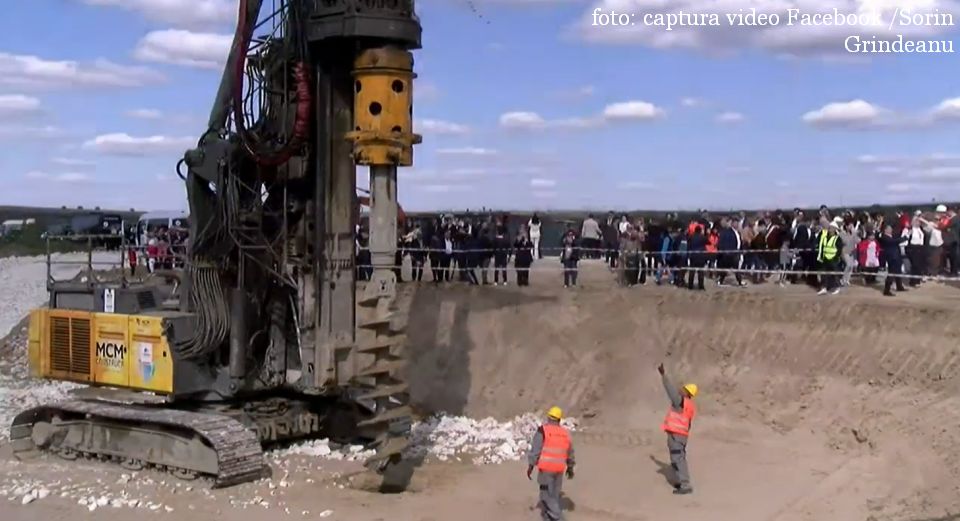Justice, offenders and politicians
Thursday was an unusually busy day in Bucharest from a political, legislative and juridical point of view.

Bogdan Matei, 05.05.2017, 14:10
The government’s strongman, the president of the Social Democratic Party and of the Chamber of Deputies, Liviu Dragnea, has not hidden his disappointment at the way in which the Senate’s Juridical Committee has so far acted in the case of pardoning sentences for acts of corruption. He announced that the case of the committee’s president, Social Democrat Serban Nicolae, would be dealt with at party level. On Wednesday afternoon, the senators in the Juridical Committee adopted the amendments on pardoning the people who received a corruption sentence that were proposed by Serban Nicolae, by his colleague Liviu Brăiloiu and by the former president of Romania, currently senator of the People’s Movement Party, in opposition, Traian Băsescu.
But on Wednesday evening, thousands of Romanians took to streets in Bucharest and other cities across Romania to protest against the corruption of the political class, be they in power or in opposition. Consequently, on Thursday, the same committee led by Serban Nicolae voted again, this time to reject the proposals for pardoning crimes such as giving and taking bribe or influence peddling.
Voting to correct the previous vote were the senators of the Liberal Party, the Save Romania Union and the Democratic Union of Ethnic Hungarians in Romania. Abstaining from the vote were of course the representatives of the governing coalition made up of the Social Democratic Party and the Alliance of Liberals and Democrats.
The fact that Senator Serban Nicolae has not yet submitted his resignation seriously mars the image of the Social Democrats, and undermines the respect he still enjoyed among his party colleagues, wrote on Facebook the former Social Democrat Prime Minister Victor Ponta, who is currently keeping a distance from the Social Democratic top leadership. Senator Serban Nicolae tried to explain:
“Just as yesterday we made a decision, today we made another decision, through the same democratic means, which shows that there was no previous hidden agenda, no fierce contradiction. We have all abstained from voting today because we did not agree with the procedure. We respected the procedure. Yesterday we voted for those amendments, today we have abstained from voting because we did not want to be part of a vote for or against this procedure for submitting to the vote again several amendments that had already been adopted. That’s all!”
Although his amendment was rejected, the former president Traian Băsescu, has remained consistent with his idea of pardoning people sentenced for abuse of office. Traian Băsescu:
“In Romania the issue of abuse of office has been treated abusively. I was reading the latest report of the head of the National Anti-Corruption Directorate who said they were working on 2,150 cases of abuse of office. I have compared the situation in Romania with that in Europe. I don’t think we will find 50-100 cases in all EU member states. Obviously, we are applying the legislation in the field in a wrong way, and this has been also shown by the Constitutional Court.”
Also on Thursday, the Constitutional Court rejected by a majority of votes, as inadmissible, the Ombudsman’s notification regarding an article in the law that forbids people with a criminal sentence to be members of the government. It is the very law that had prevented the Social Democrat leader Liviu Dragnea from becoming prime minister, despite his party’s outright victory in the December 2016 legislative elections. Last year, Liviu Dragnea received a 2-year suspended sentence for trying to rig the 2012 referendum on the impeachment of the then president Traian Băsescu. Liviu Dragnea commented on the Court’s decision:
“Their decision does not change my attitude, my life, my political activity or my political actions. We have a prime minister whom I support and a government that has all my backing. The decision is not for me”.
Promptly signaled in the international press, the latest developments in Bucharest show that the fight between the clean part of Romanian society and the politicians with low moral standards carries on. (Translated by L. Simion)






























